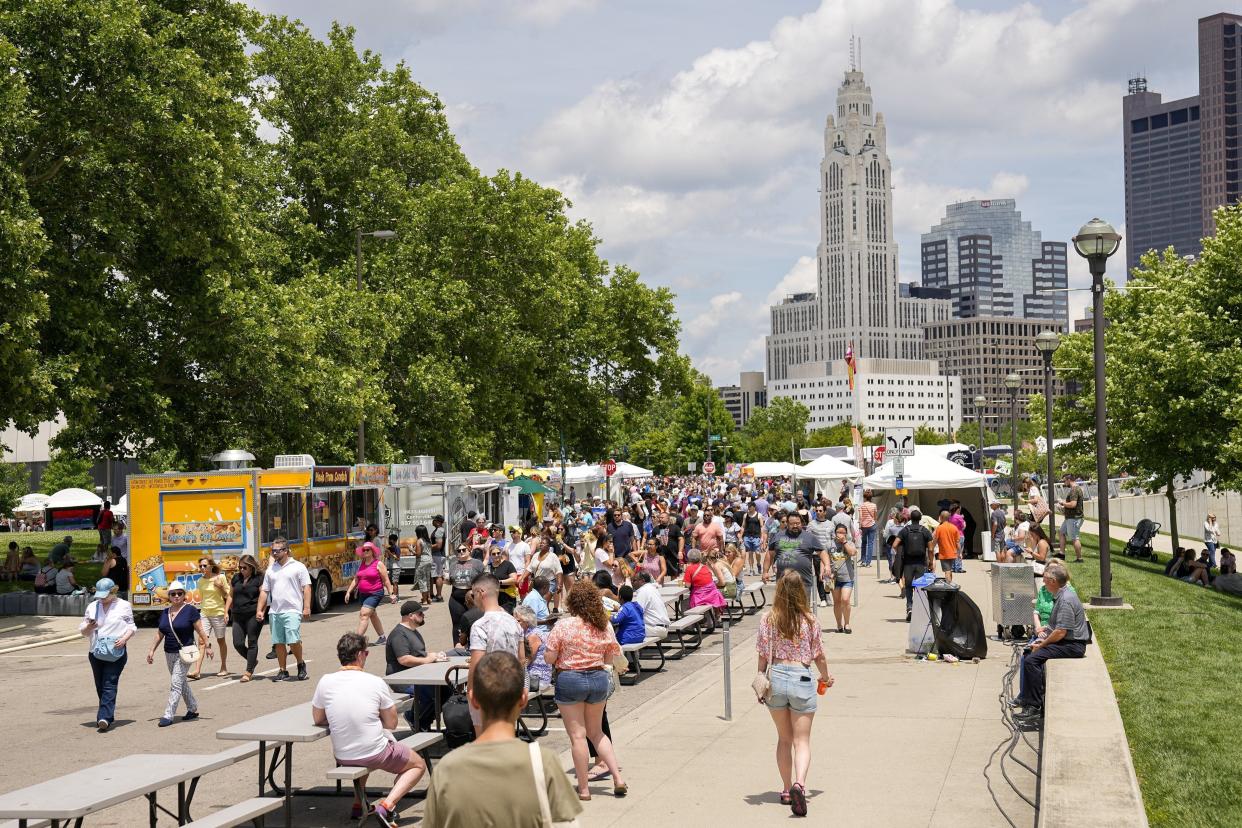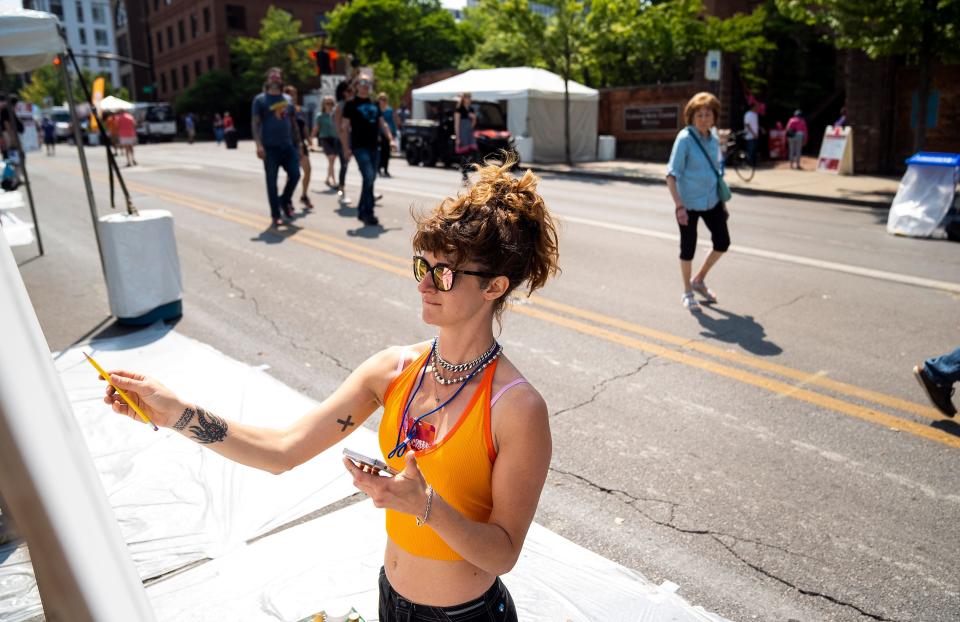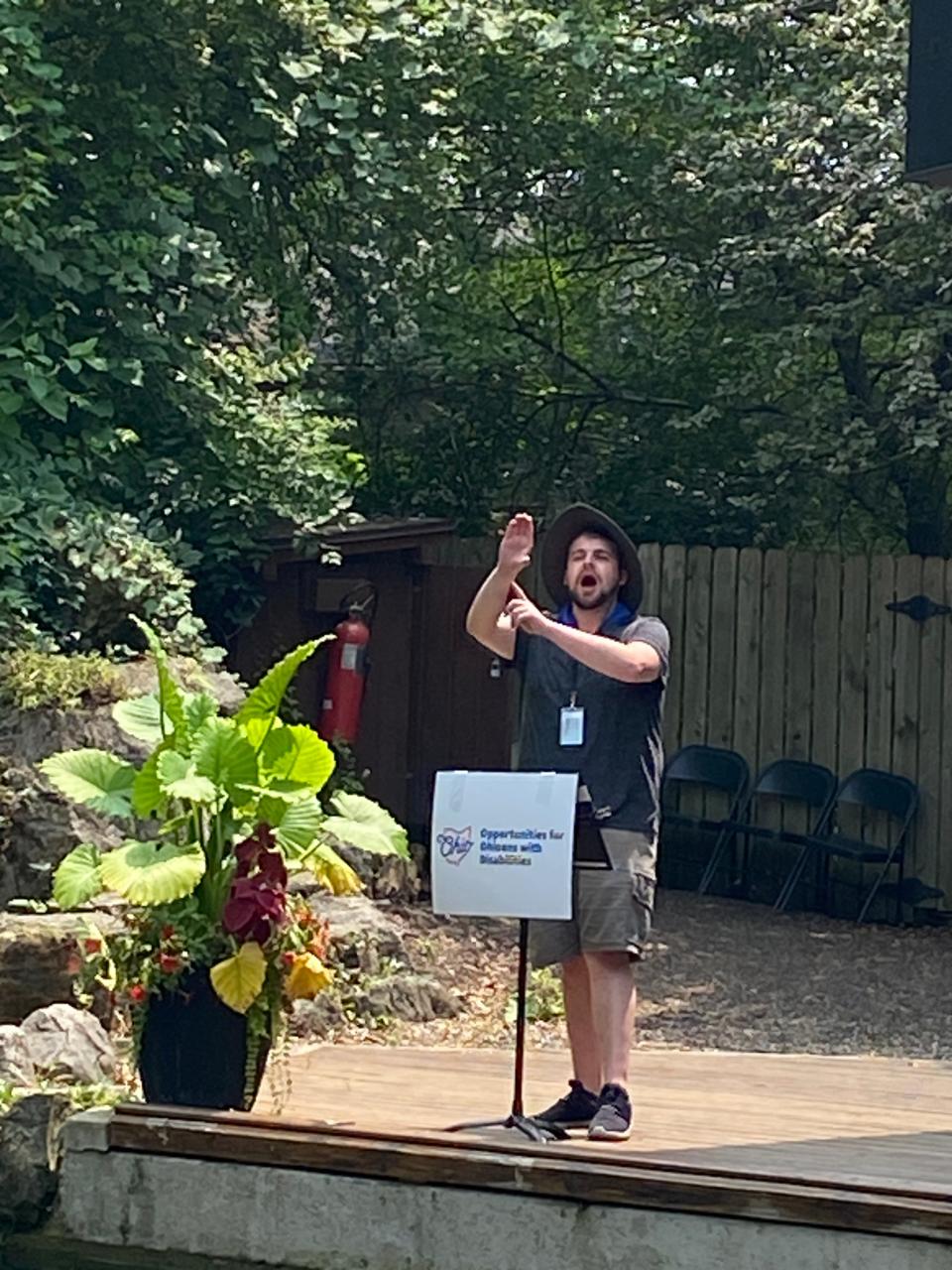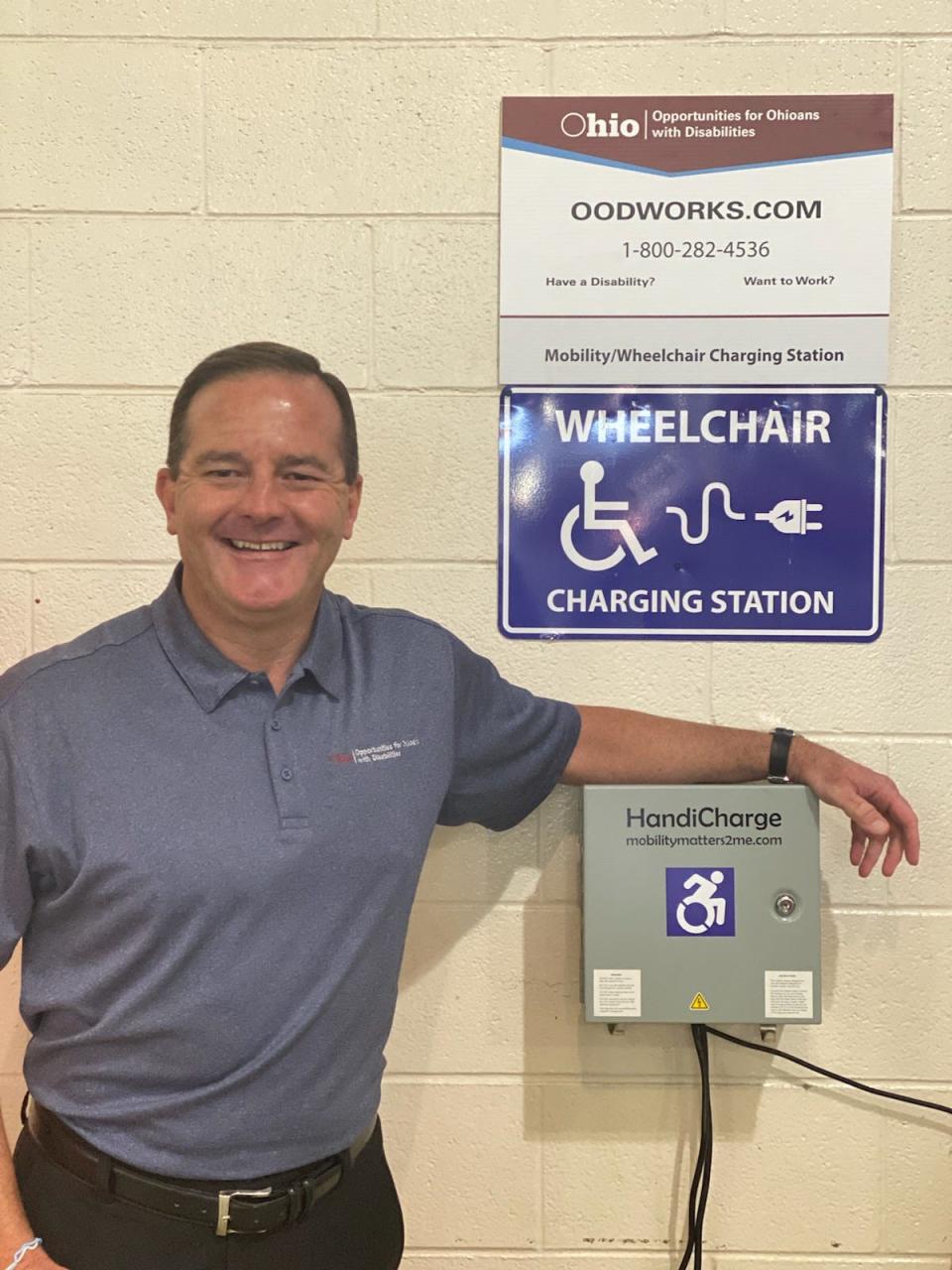State working to make festivals, other events more accessible to people with disabilities

Kim Kirkwood-Boulter will get to take her two sons to the Columbus Arts Festival for the first time this year, thanks to a partnership the festival has with the state of Ohio.
Her whole family has often stayed home rather than risk having to leave after a few hours or change her 10-year-old son Aiden — who has developmental disabilities that necessitate protective undergarments — in an undignified setting.
But planned additions for the 2024 festival, which runs June 7-9, include a mobile adaptive restroom with an adult-sized changing table, picnic tables that can accommodate wheelchairs, a cooling tent and wheelchair charging stations.

The adaptive mobile restroom, provided by California-based Momentum Refresh, will allow people with chronic medical conditions or developmental disabilities to enjoy recreational events others may take for granted, Kirkwood-Boulter said.
This way, they can "participate in society, live fuller lives, have more experiences and not be isolated at home," said Kirkwood-Boulter, who co-leads Changing Spaces Ohio, part of a national campaign that advocates for more changing tables that are appropriate for children and adults with disabilities.
The changes come after Columbus Arts Festival Director Alexis Perrone started meeting this fall with an Opportunities for Ohioans with Disabilities accessibility specialist in hopes of making the festival possible for more residents with disabilities like Aiden to attend.
Accessible Ohio is a new initiative of OOD that uses specialists like occupational therapist Tanya Vela to help venues find ways to open their spaces and events to more people with developmental disabilities and mobility needs.
Vela connected Perrone with Changing Spaces Ohio, which helped her find a company from which to rent a mobile restroom. Vela is also using her occupational therapy experience to help connect Perrone and the festival with other resources to increase accessibility, like wheelchair charging stations.
"Some of the things I'm most excited about for the festival are these little steps we're making together to open the doors," Perrone said. "I hope more festivals and events start to see the things we're doing and know this resource is here."
How Accessible Ohio works
Vela and three other specialists began working with venues and events in the fall and are funded by the state operating budget, which provided a historic amount to OOD this past year, with about $1 million going to make Accessible Ohio possible.
Julie Zeigler Wood, an occupational therapist and administrator of Accessible Ohio, said the agency created Accessible Ohio to consult with communities, businesses, venues and attractions, like the Columbus Arts Festival. They also work with museums, park districts, libraries and other public places people enjoy recreationally.

"We know many spaces and entities are already doing things well," Wood said. "But there's always more that can be done."
Consultations with Accessible Ohio are free, and its specialists can help connect venues and event hosts with resources so they are able to welcome more people.
Have a disability? Here's how to attend the Ohio State Fair
Making changes to help one underserved group of people attend an event or festival can benefit other groups, too, said Kristen Ballinger, deputy director of OOD's Division of Employer and Innovation Services. For instance, making an event more accessible for wheelchairs may also make it more approachable for people using strollers, canes or other adaptive devices.

If public recreational spaces are made more accessible, Ohio can become an even greater destination site for visitors and organizers of large conferences and other events, Ballinger said.
"Ohio has a lot to offer. We have a tremendous number of venues and attractions people visit," Ballinger said. "We realized we could help and support that culture of inclusion."
Adult changing tables: Ohio disability-rights group advocates for more in public restrooms
@DanaeKing
This article originally appeared on The Columbus Dispatch: Ohio program helps people with disabilities access more public places
